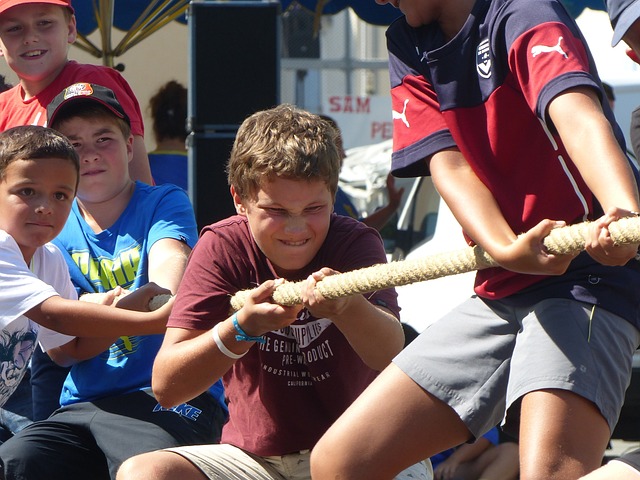Happy to be here: Fun and games
Published 4:14 am Friday, May 3, 2024
|
Getting your Trinity Audio player ready...
|
Theresa A. Kestly, a psychologist and play therapist, wrote a book designed to help her fellow clinicians understand the scientific underpinnings of play and its value for maintaining mental health. She noted, “Our brains are built to benefit from play no matter what our age.”
The eminent physicist Richard Feynman apparently agreed, but he acknowledged some challenges. He said, “Play is hard to maintain as you get older. You get less playful. You shouldn’t, of course.”
I appreciate his sentiment. I enjoy hearing my children talk about their sports-related escapades and high-energy adventures, and I love watching my grandchildren explore with their imaginations. One uses an empty plastic bucket as a helmet to become an astronaut. Another can turn any stick into a magic wand. They dig for worms, discover bugs, and stomp in puddles. For me, activities that involve getting muddy or jumping until my knees scream are no longer fun.
For those of us who prefer more sedate play, a wide variety of board and card games can open merry doors. These activities have a long history. Archeological evidence suggests that people sat across the table from one another in play as long ago as 5,000 years. Some of these early games, like backgammon, chess, and Go, are still played today.
Chess and Go rely on each individual player’s strategic skills. These games seem most enjoyable when opponents are evenly matched, or at least not overwhelmingly mismatched. Because my own level of skill with these cerebral contests falls at the bottom of the chart, I tend to prefer games that mix ability with chance.
One of our family’s favorites is cribbage. Basically, it’s a card game where two to four players race each other attempting to be the first to reach a finish line. Points that enable movement along the way are achieved by the cards you hold in your hand, how they add up, and how you play them in response to cards played by others. Part of winning involves how you play the hand you’re dealt, but another part depends on the hand you’re dealt to begin with.
An adaption of cribbage is called “muggins.” Under its rules, opposing players pounce quickly to claim any points someone else was slow to recognize. I don’t like it. Our family observes gentler rules. We help each other identify our full allotment of points. Sometimes this means helping an opponent win, but this is not a problem, especially when your opponent is someone you love. Besides, the next hand often turns the tables on who receives assistance. Playing by these rules doesn’t diminish the fun or the competition. It just ensures that winners win fair and square rather than by robbing others.
A new addition to our game repertoire is Rummikub (according to my research this is most commonly pronounced “rummy cube”). Rummikub uses tiles of different numbers and colors. Players use their tiles to build melds, which are groups of three or four tiles, either of the same number in different colors or of a sequential run of numbers in the same color. Figuring out how to rearrange previously played melds to accommodate additional tiles requires concentration, creativity, and luck.
We also added a new twist on an old favorite: Scrabble. In Europe, Mattel recently introduced a version of the game that involves group effort rather than competitive play. We’ve actually been doing something similar for a while. Based on his experience with another word game, Banagrams, my son proposed a version of Scrabble where we put all the letter tiles on the table, face up. Then, starting with a long word or focusing on a theme, we work together to build a crossword puzzle, trying to get the intersecting words to align with as few blank spaces between them as possible. There are no losers, just the joint fun of seeing what we can build by working together.
If you’ve been avoiding playtime because of mosquitos, dirt, or physical pains, I hope you find an alternative opportunity to re-introduce fun and laughter back into your days. Perhaps there are a few old games lurking in the back of your closet waiting to help your family reconnect.
Karen Bellenir has been writing for The Farmville Herald since 2009. Her book, Happy to Be Here: A Transplant Takes Root in Farmville, Virginia features a compilation of her columns. It is available from PierPress.com. You can contact Karen at kbellenir@PierPress.com.





